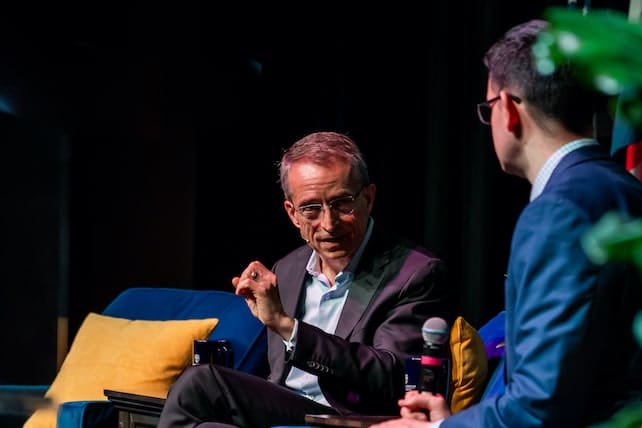AI is trained, not developed, and general AI models are being trained on the world’s data, values, and assumptions. By training its system with a Christian-worldview lens, Gloo works to ensure that Christians no longer have to compromise. “We must hold ourselves and the world to a higher standard,” said Billings.
Why the Ethical Foundation of AI Matters
In his presentation, Michael Arena—dean of the Crowell School of Business at Biola University—emphasized the importance of the values of humans who are behind the design of AI. He also addressed how AI will change the nature of work and how humans will need to adapt.
RELATED: Why Biola Started What Could Be the First Interdisciplinary AI Lab at a Christian University
Arena, who has worked at Amazon and General Motors, warned of ways that AI changes brain connectivity and amplifies human biases. As a result, he said, it’s crucial to have an ethical foundation and AI builders who have been trained in the humanities. Emotional intelligence and ethical decision-making must be part of AI systems, Arena said, and humans can’t just blindly trust the output of machines.
AI has already surpassed human capability, according to Arena, so people must regularly ask whether AI should do a specific task—and if so, how. He said although AI has reduced the half-life of technical and professional skills, “human skills” are enduring. That’s why professions that involve a human touch, such as health care and ministry, will continue to be in high demand.
“The future will belong not to those who only master AI,” said Arena, “but to those who also master what it means to be fully human, created in God’s image.”

